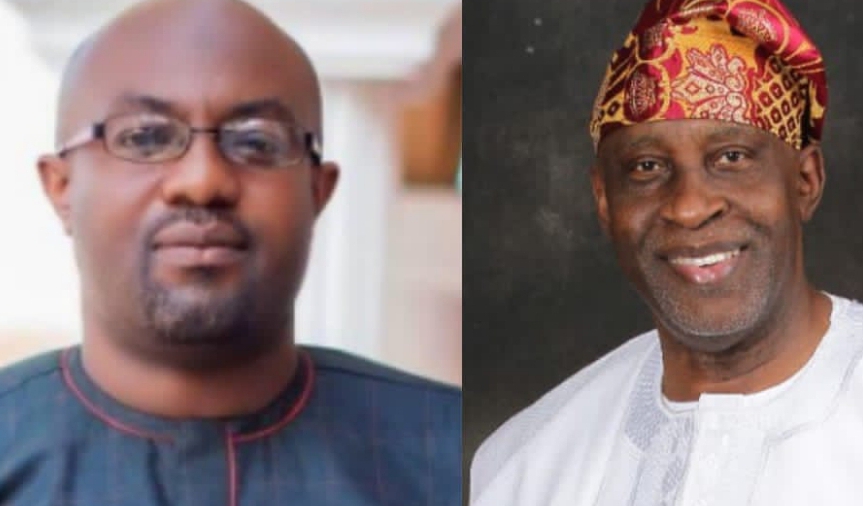New Soun: Court set to fix date for judgement – glimpse into the legal fireworks
Femi OGUNLANA
Monday, August 21 will be an important date in the history of Ogbomoso as an Oyo state High Court (Two) sitting in Ogbomoso will adopt the written addresses by the plaintiff and defendants in suit no. HOG/27/2022 filed by Prince Mohammed Kabir Olaoye, challenging the nomination of Prince Afolabi Ghandi Olaoye by kingmakers as Soun of Ogbomoso.
Also on this date in accordance with the discretion of the judge the date for the ruling on the suit will be announced or communicated to the counsels of the plaintiff and defendants at a later date.
The date of judgement according to a lawyer meanwhile must not exceed 90 days from the day of the adoption of the written addresses.
Prince Kabir Olaoye had instituted the case in July 2022 against the nomination of Prince Ghandi Olaoye by the kingmakers citing various irregularities in the procedures that produced him thereby praying the court to among other reliefs set aside the nomination and to order a fresh process.
The defendants in the case include the Oyo state governor, Oyo state attorney general, Oyo state commissioner for local government and chieftaincy matters, Ogbomoso North local government, Ogbomoso North traditional council and Prince Amos Olawole Olaoye (Mogaji Olaoye ruling house) who are 1st to 6th defendants respectively.
The 7th to 11th defendants are the kingmakers – Chief S.O. Otolorin (Areago of Ogbomoso and chairman), Chief Salawu Ajadi (Jagun), Chief Tijani Abioye (Bara), Cheif David Adeniran Ojo (Ikolaba) and Chief Yusuf Kasali Oladipupo (Abese) while Prince Ghandi Olaoye, the Soun nominee, is the 12th defendant.
Advertisement
Claiming that the regulations guiding the nomination to fill the vacant stool of Soun Chieftaincy Ogbomoso which include Soun Chieftaincy Declaration (1958), Ogbomoso District Native Authority Resolution (1953) and Oyo state Chiefs Law (2000) were grossly violated, the plaintiff seeks relief that the procedure for Ghandi’s nomination was inconclusive in that a minority committee performed the task instead of the whole members of the family.
“A declaration that the procedure adopted for the nomination of candidate or candidates to fill the vacant stool of Soun of Ogbomoso Chieftaincy by the members of Laoye ruling house through the purported 11 (eleven) member screening committee was inconclusive in that the member of Olaoye ruling house as a family was denied their legal right of having a final say in voting and/or ratifying the aforesaid report at the time the kingmakers acted upon it, not strictly the method envisaged under the native law and custom, the Laoye ruling house as a body entitled to nominate candidate for appointment to the stool of Soun and not by minority of the members of the larger body.”
Furthermore, he wants the court to declare that the active participation of the 4th defendant (Ogbomoso North local government) in the process leading to the emergence of Ghandi Olaoye rather than being mere observer invalidates the process.
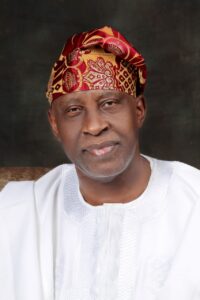
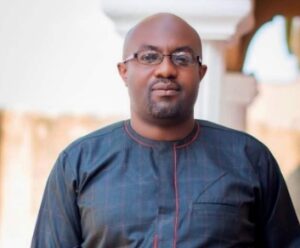
“A declaration that the participation of the 4th defendant in the nomination/appointment of candidate to fill the vacant stool of Soun of Ogbomoso is irregular, null and void and of no effect: conducting interview of candidates; affirming the screening committee as moderators and initiating others wishing to contest the stool to signify intention,” citing those as evidences of active participation of the council in the process.
The claimant as a result seeks orders of the court to set aside the nomination of Ghandi noting the procedure that produces him contravenes native law and custom for the selection of candidate for selection of a new Soun; granting injunctions restraining both the nominee from parading or presenting himself as candidate to fill the vacant stool as well as he being granted approval as Soun by the 1st to 3rd defendants pending the determination of the suit.
In the final claim it is stated, “An order of this Honourable Court directing the 1st – 11th defendants to commence the process of nomination and appointment of candidate to fill the vacant stool of Soun of Ogbomoso afresh in strict compliance with the Chiefs Law of Oyo state (2000), Soun of Ogbomoso Chieftaincy Declaration of 1958 and the Annual Volume of the Legislation of the Western Region of Nigeria.”
The team of counsels to the claimant – Oladapo Atanda, Abiodun Ogunjinmi, Clara Okwusid and Felix Ogunwoye – analytically argued the issues with evidences as well as calling witnesses and presenting exhibits.
The defendants filed statements of defence and other accompanying processes though the 4th and 5th defendants never entered appearance nor filed any statement to defend the suit while the 11th defendant filed statement of defence but failed to appear in court.
In addition the 7th, 8th, 9th, 10th and 12th defendants represented by Kolawole Fatoye, Olalekan Oguntoye and O.E. Igene filed counter-claims to which the claimant also filed defence.
In its concluding prayer the claimant prays the court to grant his reliefs and dismiss the counterclaim of the 12th defendant.
However going over the processes that led to the selection of its client (Ghandi) which it said was in line with Soun Chieftaincy Declaration and other customary laws the legal team of 7th to 10th defendants which also represented Ghandi urged the court to “dismiss the claim and grant the counter claim” noting that “all the procedure as itemized above clearly showed that the 12th defendant was duly nominated by the Laoye ruling house and selected by the kingmakers.” It further asserted the plaintiff filed “this action because the selection did not favour him having participated along with others in the nomination and selection exercise.”
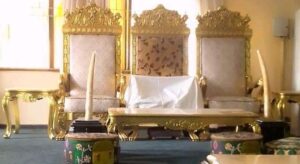
In defending the case, a witness of the defendants a deputy director at the ministry chieftaincy and local government affairs, under cross-examination maintained that the procedure as contained in the 1958 Soun Chieftaincy Declaration and the Chiefs Law was duly followed. It added that the local government not only serves as observer but as a guide on the procedure.
The witness said, “I agree that the nomination of a candidate is always presided over by the Mogaji wherein all willing members of the family are in attendance. What the Ministry knows about is that the family should submit the names of the nominees through the Executive Chairman of the Local Government, if the family unanimously agreed on a candidate so be it, but if otherwise, the names of all the nominees will be forwarded to the kingmakers.
“All that concerns the Ministry is that the family should come up with the name(s) of the nominees, the method(s) or criteria is not the concern of the Ministry provided it is the family that takes the decision. At each stage, there is always the representative of the Local Government who is there not only as an observer, but as a guide on the procedure.
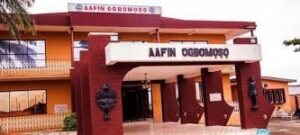
This is the legal battle before the Honourable Justice K.A. Adedokun to adjudicate, to decide the fate of an anxious community desiring to have an Oba as quick as possible.
In the meantime ogbomosoinsightonline.com recalls there are two other suits challenging the nomination by the kingmakers one based on the eligibility of Prince Ghandi Olaoye on the ground that the throne should have been ceded to another section of the Olaoye family and the other one on the ground that sons of female children from ruling houses ought to be granted right to contest the throne as well.
“But this one by Prince Mohammed Kabir Olaoye appears to be the underpinning legal battle,” noted an analyst who however pleaded anonymity.
